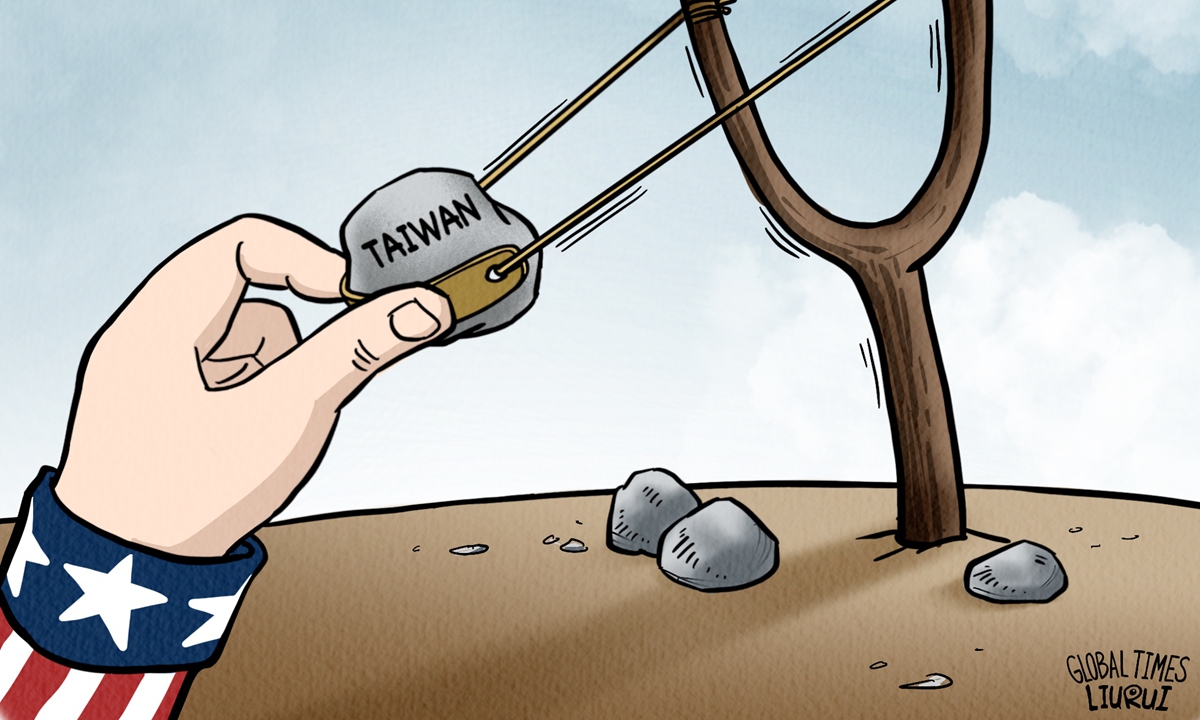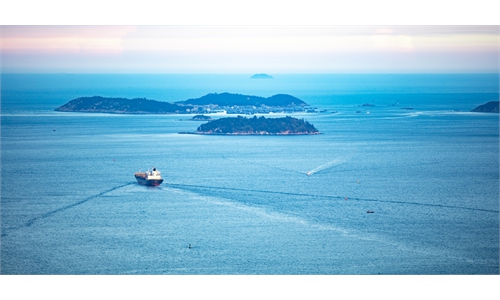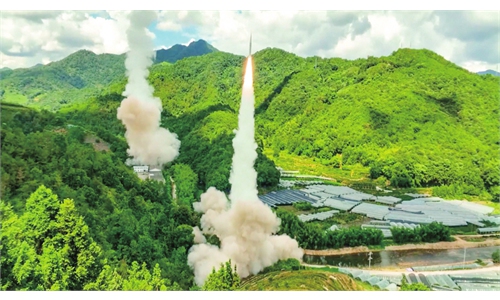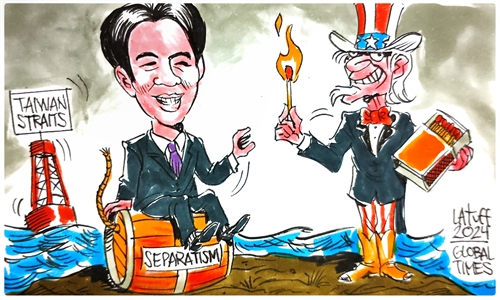As Washington views Taiwan region as pawn, ‘doubts about the US’ grow in the island

Illustration: Liu Rui/GT
The process of Taiwan region's recent leadership election reflects the concerns of its society about the situation in the Taiwan Straits, while doubts about the US fluctuate. Since the US was forced to withdraw from Afghanistan, the outbreak of the Russia-Ukraine conflict with a fact that US isn't sending troops into Ukraine, and the escalating geopolitical crisis caused by the Palestine-Israel conflict, the island of Taiwan has been filled with anxiety. Furthermore, the island's confidence in US' strategic credibility and US' promise of "defense" of the Taiwan region has been undermined.The Taiwan region is generally considered to be pro-US, and the main political parties openly express their pro-US stance. However, the Taiwan society has always harbored deep-seated doubts about the US, which occasionally surface. In 1979, the US established diplomatic relations with People's Republic of China and severed diplomatic ties with the Taiwan authorities, abolishing the mutual defense treaty. The US' abandonment of the Taiwan region caused a huge shock and high suspicion in the region.
Over the years, the "America skepticism" has been fermenting in Taiwan, which is closely related to China-US relations and the situation in the Taiwan Straits, and has manifested in the following forms.
First, the theory that the US has a plan to destroy Taiwan island. It is believed that the US, from the realism of hegemonic protection, treats Taiwan as the ultimate tool for containing China's rise. The US is now in the process of arming Taiwan into a military "porcupine," setting the island of Taiwan as a battleground for conflict. Under such misgivings, some Taiwan scholars put forward the "Ukraine situation effect" and hold that after the outbreak of the Russia-Ukraine conflict, the island's confidence in the "US defense of Taiwan" is declining, while support for cross-Straits dialogue is rising.
Second, they are worried that the US will abandon Taiwan island. It is believed that in the global geopolitical game of the post-cold war era, the power of the US will gradually decline after reaching an absolute high point. Taiwan society agrees that the US still has strong comprehensive strength and military power, but the island also recognizes that the Chinese mainland is clearly catching up and has developed a military advantage over the US in the region surrounding the Taiwan Straits.
In terms of international space, the Taiwan authorities "leaning on the US" over the years has led to the loss of a number of "diplomatic allies." These make the island even more worried that the US will probably abandon Taiwan island at some point.
Third, the US has become the source of disturbance. Taiwan society relies on the US for security but also believes that the US is accustomed to creating security dilemmas and turmoil. The Russia-Ukraine conflict in 2022 and the Israel-Palestine conflict in 2023 have deepened these concerns.
Fourth, the theory that the US wants to deplete Taiwan island. The US has traditionally not taken universal moral principles as the basis for formulating foreign policies, and its policy toward Taiwan island is not based on a moral principles of being "pro-Taiwan" or "protecting Taiwan."
Fifth, the US will be the only one to harvest interests. The US sees Taiwan island as the central point of the island chain strategy, vigorously promoting the Indo-Pacific Strategy and enlisting allied countries in intervening in Taiwan Straits affairs. Taiwan society is worried that the US is hyping up the war in the Taiwan Straits and pushing for military deployments. If a conflict erupts in the future, the US is expected to push Taiwan island and US' Indo-Pacific allies to the forefront while opportunistically harvesting interests.
Regarding various "doubts about the US," the DPP authorities attribute them all to "cognitive warfare," vigorously avoiding the issues and shifting focus. They seek to counterbalance these concerns by emphasizing the "dependence on the US." However, in today's complex world, where the US prioritizes only its own national interests, while viewing Taiwan island merely as a pawn, Taiwan society's "doubts about the US" will continue to grow.
The author is the deputy director of the Institute of Taiwan Studies at Chinese Academy of Social Sciences. opinion@globaltimes.com.cn



